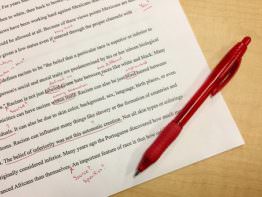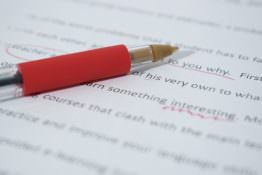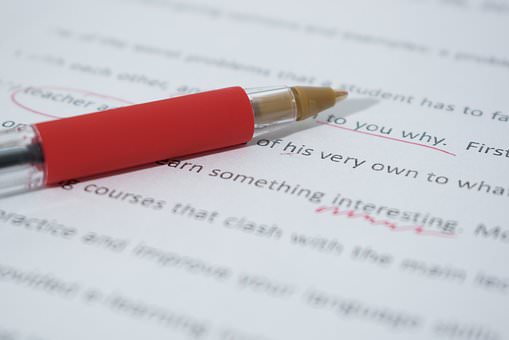Someone once reviewed an anthology in which I had a story, and began the review with the words ‘Did anyone edit this AT ALL?’ Yes, that stung, even though I was only a contributor and therefore it wasn’t my responsibility to get rid of any typos or syntax errors or continuity horrors – and I reckoned my own story was fairly blameless, though I was too scared to re-read it and check.
 Editing is both essential and, these days, pretty devalued. Even large publishing houses seem to send out stuff that’s riddled with spelling mistakes and bouts of either carelessness, shitty research or sheer idiocy. One very famous novelist put out a sort-of-sequel to a previous book and changed the surname of a key character: the novelist might have had a memory lapse, but what shocked me was the fact that no one at the publishing house had picked it up, either. Authors at all levels of skill and fame are capable of accidentally changing the colour of someone’s coat or boots from one paragraph to the next, or forgetting that people in 1973 didn’t generally microwave their suppertime soup. A good editor will at least query this sort of thing in case it was actually a heads-up to the reader that the story’s in a parallel world, after all.
Editing is both essential and, these days, pretty devalued. Even large publishing houses seem to send out stuff that’s riddled with spelling mistakes and bouts of either carelessness, shitty research or sheer idiocy. One very famous novelist put out a sort-of-sequel to a previous book and changed the surname of a key character: the novelist might have had a memory lapse, but what shocked me was the fact that no one at the publishing house had picked it up, either. Authors at all levels of skill and fame are capable of accidentally changing the colour of someone’s coat or boots from one paragraph to the next, or forgetting that people in 1973 didn’t generally microwave their suppertime soup. A good editor will at least query this sort of thing in case it was actually a heads-up to the reader that the story’s in a parallel world, after all.
Self-published authors and indie publishers are often regarded as perpetrators of error-riddled, badly-written books – and terrible covers – for the same core reason: a reluctance to pay for professional-quality work. The growth of horrible gig-economy sites like Fiverr have probably made things worse, as well. (Use this and you will get exactly what you pay for: if you get a competent job then you will be riddled with guilt at having exploited someone who is skilled but desperate, or you should be). To be fair, many individuals and small-scale publishing houses do budget for cover design and editorial help, or they have a reasonable amount of competence in either proofreading, creating artwork or both.
 We all know that, unless you’re one of the lucky few, authors don’t make a great deal of money out of writing, and it’s easy to feel that being asked to pay for at least a basic edit is beyond you if you are at the start of your career.
We all know that, unless you’re one of the lucky few, authors don’t make a great deal of money out of writing, and it’s easy to feel that being asked to pay for at least a basic edit is beyond you if you are at the start of your career.
This probably does sound like an extended sales pitch for the editing services on this site, but plenty of people in and around the book world will give any aspiring author similar advice: spend your spare money on an edit rather than on marketing campaigns. (See Hans M Hirschi on the subject.)
And if there’s no spare money at all? For the sake of your readers, and your future sales, at least do the following. Run your spelling/grammar-checking tool over your work one last time. It won’t be 100% accurate and some of its suggestions will be over things that are a matter of preference rather than ‘correct’ writing, but what it will pick up are things like: you did a find/replace of a single-syllable word which has been too enthusiastic, or you substituted something and cocked up on the spaces. Also, plan to leave your allegedly finished piece of writing severely alone for at least a week – begin another project, go on holiday, drink beer and party for several days if you fancy it – and then read it through from the beginning. Mistakes are more likely to leap out at you if you haven’t been staring at the same piece of text for weeks on end.
And if you know or suspect that your spelling, punctuation or vocabulary are not all they should be, put some work in on those. The cleaner your draft, after all, the cheaper your edit…

